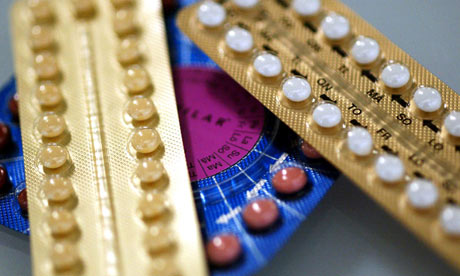
Hang on a minute. Don't the fairer sex already have countless contraceptive options at their disposal – pills, patches, injections and coils – while men remain stuck with the centuries-old, deeply unpopular "French letter"; "coitus interruptus"; or a vasectomy? Shouldn't the bulk of research now be focused on remedying this, rather than developing yet another contraceptive for women – this time a gel?
Yes, men need more options. But this gel may be a revolutionary step forward for both sexes. The emergence of the pill in the 1960s promised to transform women's lives – allowing them to sleep with whom they wished, and decide when and if they had children. (The attendant benefits for men are equally obvious.) Yet with the new drugs came side effects such as weight gain, hormone imbalance, nausea and, for those with a family history of the problem, an increased chance of high blood pressure. Much progress has been made on reducing these side effects over the decades, but the fact is they still exist, and in Britain alone 2 million women are thought to be unhappy with their contraceptive method. Meanwhile unwanted pregnancies, as we know only too well, are hardly a thing of the past.
The pill, as most clinicians accept, is an unsatisfactory solution for many who may forget to take it regularly – and often it's the people whose lives are most chaotic (and who are likely to forget to take their pill) who are also least well-equipped to deal with an unplanned pregnancy (see the controversy raging at the moment about a new project to address this).
Of course, women no longer have to remember to take something once a day: they can opt for an injection which protects them for up to 12 weeks, or for a patch or implant which lasts considerably longer. As with the pill, though, these are hormone-based treatments that can have unpredictable consequences – many of which, to date, have been under-researched. One friend who had the implant was told by several specialists that her loss of sex drive could have nothing to do with the treatment. After many months of worry, soul-searching and strain on her relationship, she had it removed and her appetite for sex returned almost immediately. Given the high number of women who, like her, report not enjoying sex, or having difficulty with it, and the negative impact this can have on their relationships, self-esteem and general wellbeing, problems like this should not be ignored.
But how might the gel work any better? Like the pill or the implant, it is a hormone-based treatment, bringing in a steady stream of progesterone and oestrogen through the skin to stop the ovaries releasing an egg each month. The difference, though, is that it is applied in small doses, on an as-needed basis, and can be discontinued at any time – making it less risky than an injection (which, once in your bloodstream, you're pretty much stuck with), and much less invasive than an implant or a coil. Neither is it visible or liable to fall off, as the patch is. And, as yet, none of the side effects associated with other hormone treatments have been observed with users of the gel.
More promisingly still, it can be used while breastfeeding – unlike the pill, which can frequently interfere with milk supply. (This is no small advantage. As my mother once put it to me: "Probably the worst time you can get pregnant – apart from when you're a teenager – is when you've just had a baby.")
One further thought. News of this contraceptive gel comes just weeks after reports of an anti-retroviral gel that could help women protect against Aids. At the moment, only condoms – infamous passion killers – offer this. It's early days of course, but imagine a sex aid that protects you from both pregnancy and STDs – and enhances, rather than detracts, from sex itself. Gel and lubricants are, after all, widely used by men and women to enhance sexual pleasure.
Imagine an era where "she said she was on this pill"; or "he told me he couldn't do it with one of them" just didn't cut it anymore. It won't happen tomorrow, but a tube of gel might just revolutionise sex – and sexual politics – as dramatically a packet of pills once did.

